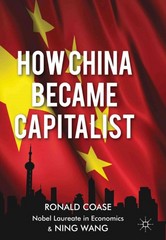Question
1. According to the calculations of Angus Maddison, recall that the annual economic growth for GDP per capita for the years 2000 to 2016AD was
1. According to the calculations of Angus Maddison, recall that the annual economic growth for GDP per capita for the years 2000 to 2016AD was 2.7%. What can we conclude from this number?
Group of answer choices
Living standards were not changing from century to century
At the rate of growth during that time, it would take about 26 years for income per person to double
There is a decrease in income for this period
The inflation rate in 2016 for most countries was lower than in 2000
2.Suppose for the country of Joshua-land, the annual inflation rate is 7%, the population growth is 5% per year while GDP increases by 2% per year. How long would it take for the country to double its GDP?
Group of answer choices
7 years
14 years
35 years
Never
3. For the previous question, how long would it take Joshua-land to double its GDP per capita?
Group of answer choices
7 years
14 years
35 years
Never
4. For Joshua-land, how long would it take for prices to double?
Group of answer choices
7 years
10 years
35 years
Not enough information
5. Which of the following was NOT an argument presented in this class about economic growth?
Group of answer choices
Economic growth is not desirable
Economic growth is desirable
Economic growth is not only desirable but also necessary
Economic growth is necessary BUT is not desirable
6. What is the definition of investment?
Group of answer choices
Spending by households
Spending by firms
Spending by the government
None of the above
7. According to the lecture slides, which of the following is NOT associated with a higher unemployment rate?
Group of answer choices
More suicides
More homicides
More people in prison
All of the above are associated with higher levels of unemployment
8. Suppose we have the following information for the country of "Arevalo-opolis":
Unemployed = 14 million
Employed = 186 million
We have the following table for the unemployment rates (U rates) that correspond to the different amounts of real GDP:
Real GDP Total U Rate Structural U Rate Frictional U Rate
$18 trillion 10% 3% 1.5%
$20 trillion 5% 3% 2%
What is the GDP lost when the number of unemployed is 14 million?
Group of answer choices
$0.4 trillion
$0.8 trillion
$1.6 trillion
Not enough information
9. In the United States, a large group of people known as the baby boomers are retiring: about 6,000 per day (according to the Pew Research Center).
What is the likely effect of this mass retirement on our country's Labor Force Participation rate?
Group of answer choices
Increase
Decrease
Unchanged
Unclear
10. If a country's money supply is $45,000, the price level is $22.50 and the output is 30,000. According to the quantity theory of money, what can we conclude about this country?
Group of answer choices
The velocity of money in this country is 10
Money is changing hands about 15 times every year
The unemployment rate is 15%
Not enough information
11. What happens if there is unexpected inflation?
Group of answer choices
Nothing
Borrowers tend to be better off
Lenders tend to be better off
The demand for money will decrease
12. In the world, how many countries have trade protection?
Group of answer choices
None
Ten
One hundred (around half of the world's countries)
All of the world's countries
13. Which of the following statements about international trade is FALSE?
Group of answer choices
It is controversial
It is generally beneficial
It is prevalent
All of the above are true
14. According to the AD-AS model, what would be the long run effect of the LRAS curve shifting left?
Group of answer choices
Output falls and the price level falls
Output rises and the price level rises
Output falls and the price level rises
Output is unchanged and the price level rises
15 Suppose a country's consumption level drops. According to the AD-AS model, what happens to the economy in the short run?
Group of answer choices
Output rises and the price level falls
Output falls and the price level falls
Output falls and the price level is unchanged
Output rises and the price level rises
16. The Federal Reserve decides to double the country's money supply. According to the AD-AS model, what is the effect on the economy in the long run (relative to the initial equilibrium)?
Group of answer choices
The real interest rate increases
Output rises
Unemployment rises
Purchasing power of money decreases
17. Consider the famous businessman and wealthiest individual in the early 20th century John D. Rockefeller. His wealth peaked in 1913 at $1 billion (in 1913 dollars). In the early 21st century, the wealthiest individual was Bill Gates. His wealth peaked at $43 billion in 2003 (in 2003 dollars). If the CPI in 1913 was 9.9 and the CPI in 2003 was 184, how does Rockefeller's wealth compare with Gates' in terms of purchasing power?
Group of answer choices
Rockefeller's wealth is less than half of Gates'
Rockefeller's wealth is about 80% the size of Gates'
Rockefeller's wealth is the same as Gates'
Rockefeller's wealth is about ten times the size of Gates'
Step by Step Solution
There are 3 Steps involved in it
Step: 1

Get Instant Access to Expert-Tailored Solutions
See step-by-step solutions with expert insights and AI powered tools for academic success
Step: 2

Step: 3

Ace Your Homework with AI
Get the answers you need in no time with our AI-driven, step-by-step assistance
Get Started


